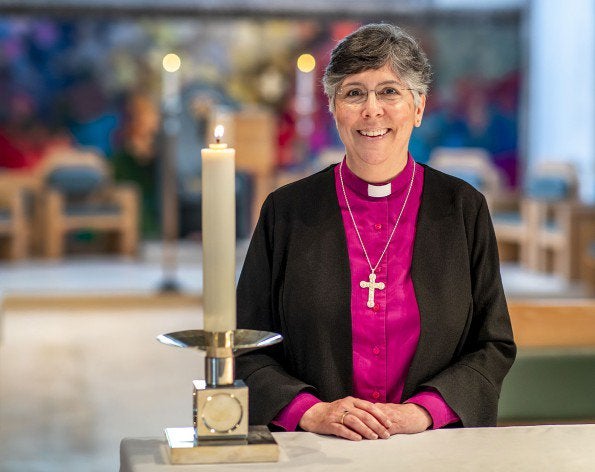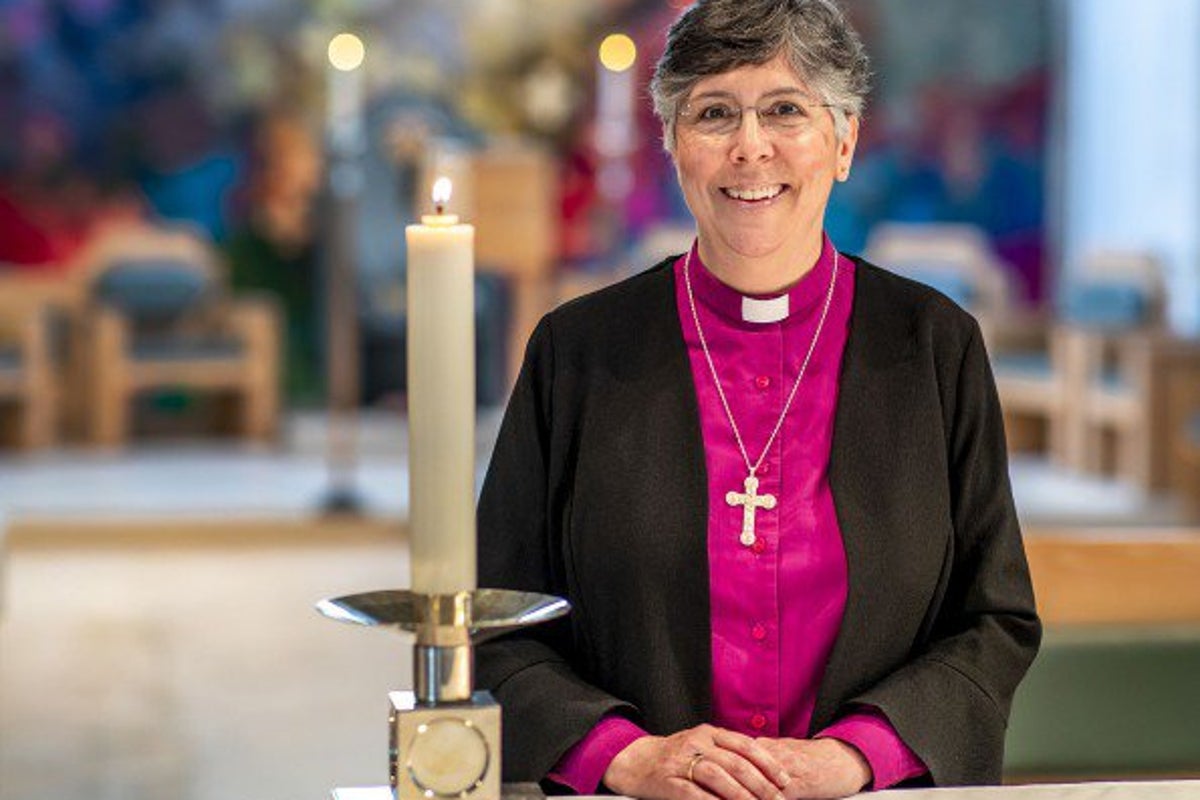Recently, I met a refugee who, like me, is from Iran, but arrived more recently and via an irregular route. His words stay with me: “Now, I feel like no matter how hard I try, I’m never really going to be part of this society. It’s like I’ll always be an outsider who’s been added on but doesn’t truly belong.”
When I arrived here as a refugee in 1980, in the wake of the Iranian Revolution, the UK was more welcoming to asylum seekers. I was just 13 and, unlike those arriving today, felt no fear of being judged or attacked because of these painful circumstances. By 16, I was well on the way to being integrated, thanks to the opportunities and encouragement I was given. A year or so later, I was granted citizenship. I don’t think I understood the enormous significance.
Now, I am extremely aware of what having British citizenship means – not least because that opportunity is now closed to many refugees.
In February, the Home Office changed the guidance so that those who have arrived in the UK irregularly, such as on a small boat, will be refused citizenship – even after being granted status as a refugee, and regardless of how long they have been here for, or what part they play in British society.
In a move that reflects a deeply unsettling shift in this country’s commitment to welcome and tolerance, these changes to regulation imply that if you arrive irregularly to seek safety as a refugee, your character is in question. And therefore you cannot be considered appropriate to be a British citizen.
I know this is both untrue and profoundly insulting. When I, as a girl, arrived here due to terrifying and tragic circumstances – an assassination attempt on my parents, and the murder of my brother, Bahram – people were understanding and supportive. Then, being a refugee did not lead to demonisation and the questioning of your good character. It led to empathy and care.
The incalculable number of refugees and immigrants who have made a vital contribution to their community is a powerful counter to current rhetoric, and to the waves of anti-refugee resentment being stirred up by a loud minority. Only this week, a billboard of the Queen singer Freddie Mercury – who, as Farrokh Bulsara, fled to the UK with his family in 1964 during the Zanzibar Revolution – was unveiled in Liverpool with the slogan: “Thank God for immigrants.”
 ‘My citizenship means I can give service to God and the Church in my role as a diocesan bishop, and one who sits in the House of Lords – a role only afforded to those who are citizens’ (Diocese of Chelmsford)
‘My citizenship means I can give service to God and the Church in my role as a diocesan bishop, and one who sits in the House of Lords – a role only afforded to those who are citizens’ (Diocese of Chelmsford)
My citizenship means I can give service to God and the Church in my role as a diocesan bishop, and one who sits in the House of Lords – a role only afforded to those who are citizens.
But now, having faced the asylum system, people will likely never fully be able to shake off its shackles and achieve their potential. Under the new regulations, the best people can hope for is “indefinite leave to remain”, which keeps them locked in a psychological holding pen. Never fully feeling safe. Never truly being part of this country.
Rishan is a nurse in an NHS A&E department in Kent. She arrived in the UK in the back of a lorry from Sudan just over 10 years ago, as an unaccompanied minor. She worked hard to achieve the right qualifications, learn excellent English, and build a life in which she is a highly valued member of her local community – supporting vulnerable people, and saving, usually British, lives. Thankfully, she gained her citizenship last year, before the rules were changed. But under the current regulations, she would not be considered “good enough” to become a British citizen.
Sabir Zazai, CEO of the Scottish Refugee Council, has honorary doctorates from the University of Glasgow, the Open University and the University of Dundee. A fellow of the Royal Society of Edinburgh, he received the Lord Provost’s Award for Human Rights in 2019 and was made an OBE in 2022. Yet when Sabir arrived in the UK from Afghanistan in the Nineties, it was in the back of a lorry. Despite all of these accolades, under the new rules, he would no longer be considered to be of good enough character to be eligible for British citizenship.
Looking back, I realise how important this sense of security has been in helping me to integrate. The knowledge that I have certain rights has brought with it an awareness, too, of my responsibilities – to contribute, and to play my part, to the best of my ability.
It allowed me to move from being an outsider to becoming an insider of sorts; someone who would always be shaped by the experiences that brought them to this country, and is still aware of their roots as an Iranian, but has been granted a new home and a chance to start again.
But the psychological impact is not the only new challenge people will now face. This ban on British citizenship means that many of those granted refugee status will not be able to vote in the country where they live and work, and where their children go to school. They will have no say in the democracy to which they contribute, and in which they pay taxes. They will not be permitted to hold a British passport, and for many, this means not having a passport at all.
It’s why I’m leading the call for an amendment to reverse the ban on British citizenship in the Border Security, Immigration and Asylum Bill, which is being debated in parliament today. I will never take my British citizenship for granted. And we must not allow this vital and meaningful status to be stripped from others who are, essentially, no different from me.
The Rt Rev Dr Guli Francis-Dehqani has served as the Bishop of Chelmsford since 2021
